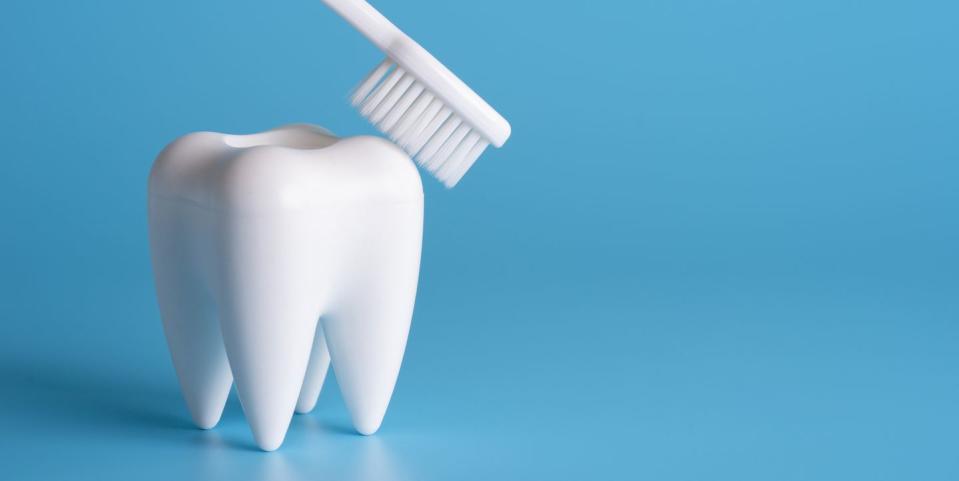When will dentists reopen in the UK? What if I need a treatment?

Routine dental treatments have been put on hold since 23 March, the day that the the UK went into lockdown to help curb the spread of coronavirus. While hairdressers and beauty salons could potentially open soon – there has been no sign of when dental practices will be allowed to open.
When will dentists reopen in the UK?
On 10 May, Prime Minister Boris Johnson laid out plans for the gradual easing of lockdown measures to allow the UK to reopen, including the potential reopening of hairdressers and beauty salons on 4 July (at the earliest).
However, it is still unclear when dentists will reopen. Following the Prime Minister's speech, chief dental officer Sara Hurley in England issued a "no change yet" statement on the subject of reopening dental clinics: "The temporary cessation of routine dentistry addresses the safety of patients and of dental teams as well as supporting the public health measures required to slow community transmission of COVID-19."
Martin Woodrow, chief executive of the British Dental Association, said in a statement that discussions were taking place across the UK "about how dentistry emerges from the lockdown". He added: "However, until we are advised otherwise, we are working under the assumption that the existing advice for practises still applies. This means practises are still to treat initially via advice, analgesics and antibiotics where appropriate, and to triage care into the various urgent care systems".
However, just because you are social distancing from your dentist does not mean your oral health needs to suffer. We spoke to leading London dentist Dr Richard Marques about how to look after your teeth and oral health during the coronavirus lockdown.
How to look after your teeth during lockdown
The best thing you can do to avoid needing to see a dentist, is to maintain a good oral health routine. Here are some general tips:
• Brush twice daily for two to three minutes in the morning and evening. Any more and you can wear the teeth away, any less the teeth and gums may suffer.
• Don’t forget to floss. Make sure you’re cleaning between the teeth at least once a day with dental floss, interdental brushes or an electric air or water flosser.
• Rinse your mouth with an alcohol-free mouthwash to kill bacteria your toothbrush might miss. Use after brushing and whenever you need a quick freshen up.
• Chew on some sugar-free gum for quick-fix to freshen breath, just be careful not to use this in place of brushing or rinsing as it won’t eliminate odour causing bacteria.
• Don’t forget about your tongue. Use your toothbrush or a tongue scraper daily to remove bacteria and food residue left behind, keeping your mouth clean and your breath fresh.
• Take Co Enzyme Q10, a vital molecule that’s every dentists favourite for overall gum health. It’s very difficult to get enough of this from diet alone, so I recommend taking supplements to boost intake.
• Avoid sugary food and drinks. Bacteria in the mouth feeds on sugar, turning it into acid that can lead to tooth decay, so it’s best to steer clear on things like sweets and fizzy drinks.
• You are what you eat, so make sure your diet includes lots of greens like spinach and kale which are high in anti-oxidants, as well as vitamins including Vitamin K, which is an important nutrient for a healthy mouth.
What should I do if I need dental treatment during lockdown?
Firstly, it’s important to understand whether or not the situation is emergency or not.
Issues such as a lost filling, dull toothache, mild sensitivity or a small chip in tooth can all be treated at a later date. Examples of more serious issues which would constitute an emergency include:
Gums that will not stop bleeding
Extreme tooth sensitivity or toothache causing constant pain
A tooth that has been knocked out/is jagged
Swollen cheeks/gums and general extreme pain from swelling or possible infection
Should you experience any of the above, try calling your dentist in the first instance as they may have setup a helpline to offer advice and if symptoms continue, call the NHS helps service on 111. If the situation is serious, you may need to go to A&E – however, especially at this time you should only do so if 100 per cent necessary and advised by a medical professional. Try to stay calm as stress will cause the body to react in way that will worsen the symptoms.
Here are a few things you can do at home to try and ease the situation:
If your teeth is knocked out, place it in a glass of milk until it can be treated (the milk helps keep an acid-alkali ratio meaning the tooth won’t swell)
Take paracetamol (or if safe to do so, ibuprofen) to help reduce the immediate pain
Hold an ice pack (or a pack of frozen veg) on areas of swelling
Dissolve salt in warm water and swish around the mouth for 60 seconds to help remove bacteria and clear infection
Dab a small amount of clove oil on the affected area to help reduce pain
You Might Also Like


